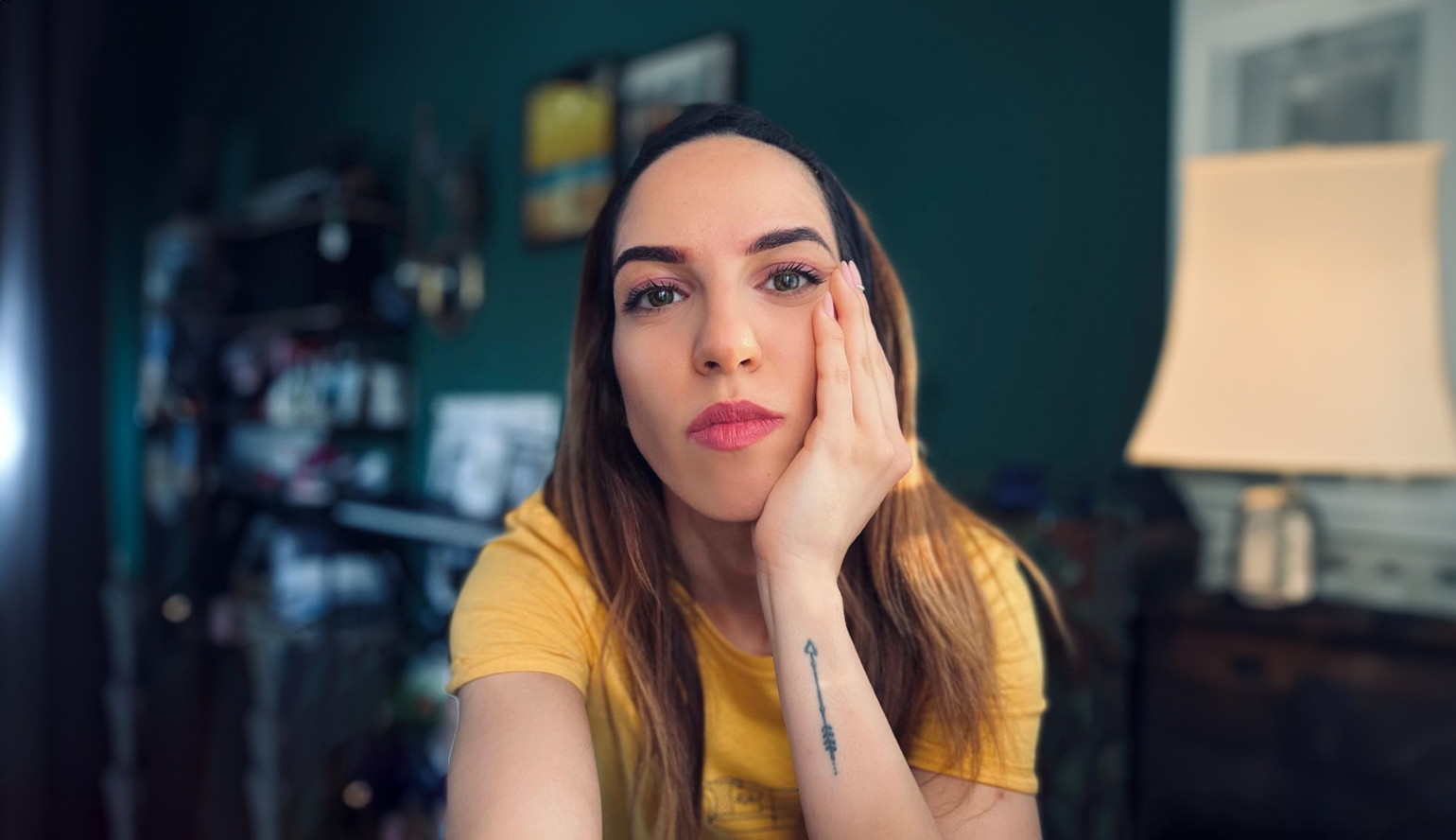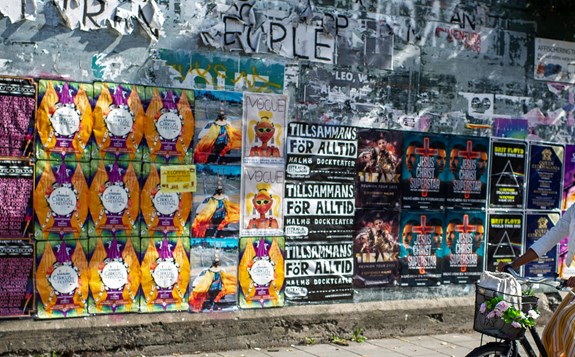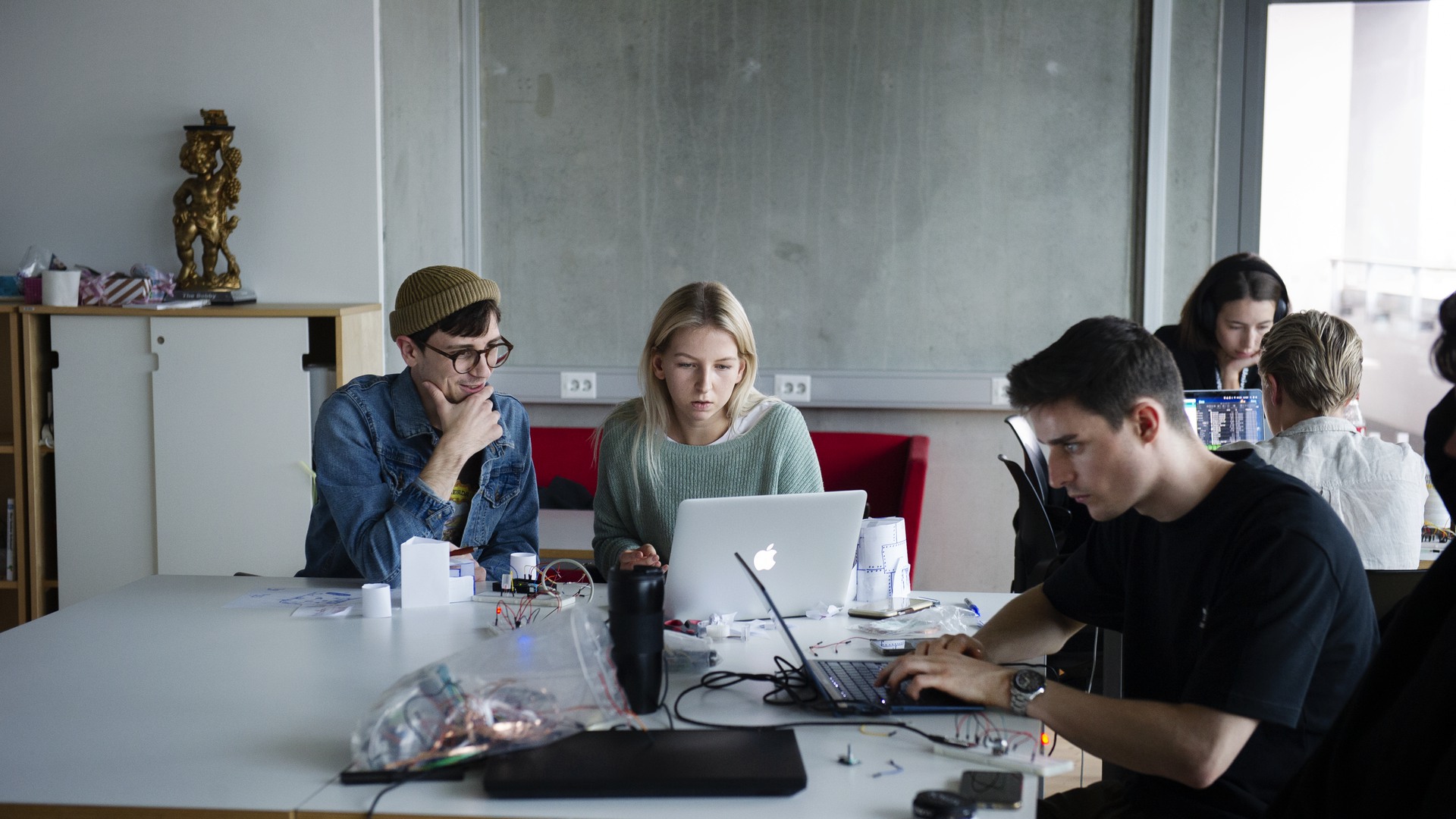“The perfect recipe”
Deliana is a 23-year-old student on the two-year master’s programme. She has a bachelor’s in American studies (cultural studies) from the University of Bucharest, Romania. Her passion lies in artistic practises and her future ambition is to work within the creative industries.
The master’s programme was Deliana's first choice, for several reasons.
“I had wanted to live in Malmö for a period of time and the title of the programme was very appealing to me. Media, collaboration and creativity were key terms that led me to imagine the programme being interdisciplinary and innovative- the perfect recipe,” she explains.
“Media is an umbrella field that is consistently changing and I believed this could be an opportunity to combine the two subjects that I am the most interested in: the digital and the cultural landscape. I have been right so far,” she says.
Appreciates Malmö’s eclectic vibe
“I love living in Malmö which has an eclectic vibe due to the multicultural citizens. My first impression of the city is that there are a lot of opportunities for young people to evolve in whatever direction they want to.”
With a background in a more traditional academic environment, Deliana really enjoys how the university facilities, especially the new building, Niagara and the main library Orkanen, are designed in a way to encourage students to interact with each other.
Advantages of attending courses both on campus and online
“I like to study on campus because then I can interact with my classmates and professors and feel more motivated. I need the campus atmosphere in order to keep the pace of my studies. But being able to study online is also great. For example, when I went back to Romania for three weeks, I attended the lectures online instead. When I got back to campus I had not missed a thing.”
Networking during the studies opens opportunities
Deliana does volunteer work at a non-profit organisation for refugees in Malmö. She is also working on a case study about an organisation within the creative industries. This she says, puts her in contact with people from the industry and opens the possibility for future collaborations. Deliana is convinced that her studies could open doors for her.
“I believe it will open a lot of networking possibilities, and also give me the theoretical knowledge that I need for the field.”
“I think the way in which independent studying has been created in this programme goes in line with the idea of collaboration and entrepreneurship, encouraging us, the young professionals to take the situation in our hands and make the best out of it. The professors are open to questions, always helpful and the feedback is always constructive, never discouraging”.







